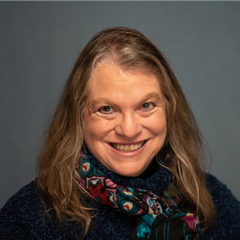Anti-Ageist Social Work: What Clinicians Need to Know
Date and Time
June 6, 2023
1 p.m. - 4:30 p.m. EDT
Offered via live webinar.
Completion of this class will result in the receipt of three and one-half (3.5) continuing education hours.
-
In the United States, ageism is widespread, even though the proportion of individuals over 65 is predicted to double by 2030. Ageism takes many forms. Even seemingly compassionate responses risk “othering” older adults, harming these individuals, and potentially increasing their own fear of aging. To prepare for the future, social workers must be skilled at providing non-ageist, targeted, and caring interventions when working with this population.
This class is designed to help develop more positive and nuanced perspectives on aging. We will examine micro-level images of aging by considering participants’ perspectives on aging and consider the myths and challenges of physical and cognitive aging. At more macro- and mezzo-levels, we will explore how different images of aging may impact governmental, community, and organizational approaches to dealing with older populations. We will briefly review the effects of theory, policy, and culture on the medical and economic concerns of individuals over 65, along with how different community structures and individuals’ philosophical choices also affect quality of life. Important examples will be drawn from other countries’ experiences in addition to practice in the U.S.
LEARNING OBJECTIVES
After completing this class, participants will be able to:
- Identify demographic trends regarding aging in the US.
- Identify medical and psychological challenges faced by the aging individual.
- Recognize the challenges for aging introduced by the intersection of aging, race, and income inequality.
- Recognize our personal perspectives on aging.
- Recognize the role of advance care planning for older individuals.
- Introduce philosophies that can help restructure older individuals’ negative perceptions of themselves and the aging process.
- Recognize the micro, meso, and macro influences that support aging.
-

Jennifer J. Halpern, PhD, LMSW, APHSW-C
Jennifer Halpern is a palliative social work educator. Dr. Halpern recently retired from her position as a senior medical and palliative social worker at the Oncology Support Program (OSP) of the HealthAlliance Hospitals of the Hudson Valley, where she worked with both inpatients and outpatients, facilitating groups, including the Caregivers’ and Women’s Support Groups. Dr. Halpern was the Psychosocial Coordinator for the hospital’s Cancer Committee and Chair of the Ethics Committee. Previously an assistant professor at Cornell University, her publications focus on communication, negotiation, and decision-making in healthcare. She recently published an article on the effect of cognitive heuristics and biases on palliative social work support of patient and caregiver decision-making during the COVID-19 pandemic. She has also authored and edited a book on rational decision-making. She is a member of the Board of Directors of the Social Work in Hospice and Palliative Care Network, and of the Las Cruces Palliative Care Coalition.
-
Class fees are listed below:
- Full Tuition - $105
- GSS Alumni - $88
- Current Field Instructor to a Fordham MSW student - $88
- Current Adjunct Online Faculty - $88
- SWHPN Member - $88
- 3+ from one agency at same time - $70
- Current Military and Veterans - $70
- Non-Fordham Current MSW or Social Work Doctoral Student - $53
- Current Fordham MSW or PhD Student - $35
- Fordham Alumni Palliative Care Fellow - $35
- Field Instructor or Career Mentor to a CURRENT Palliative Care Fellow - $35
- Fordham faculty and staff - $0
- Current Fordham Palliative Care Fellow or Montefiore Fellow - $0
Continuing Education Hours
Completion of this class will result in the receipt of three and one-half (3.5) continuing education hours. CEHs are not awarded for partial completion of the class.
-
You will receive the Zoom link for joining the class by the day before the class. IF YOU HAVE NOT RECEIVED THE LINK BY THIS TIME, PLEASE CHECK YOUR SPAM FOLDER.
You will need a computer and a reliable WiFi connection. The computer may be a desktop or a laptop. It may be an Apple or Windows computer.
If you have never used Zoom before, you will likely be prompted to download an applet, which is a small program that allows Zoom to communicate with your computer. This is safe and you will need to do this to join the class.
It is NOT advised that you participate using a table (e.g., an iPad) or a cellular phone. The software is not optimized for these devices.
Please plan to join the online class 15 minutes before the start time to be sure that you don’t have any problems connecting. We cannot provide technical support to you and refunds won’t be offered if you have technical problems. If you have any questions or concerns about this, please contact us at [email protected] at least a few days before the class.